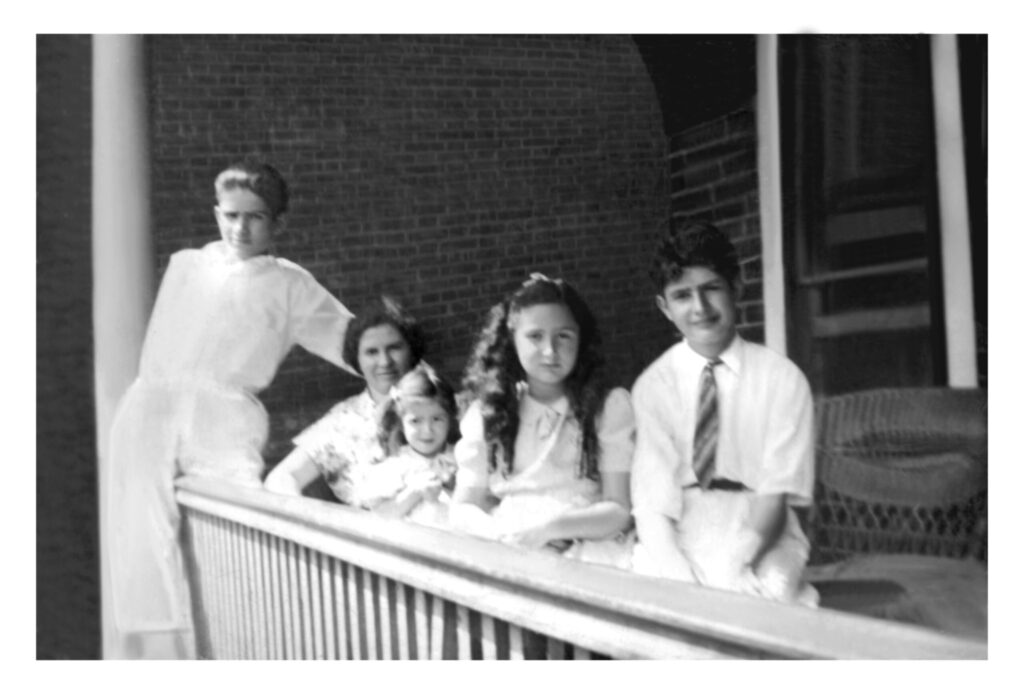When I started my novel, Emerging From Etna’s Shadow, it was supposed to be about my grandmother. I didn’t know much about her, so the project was always destined to be historical fiction. As I started writing, something unexpected happened: the characters took over. They guided me away from my initial plan, pulling me deeper into the past. By the time I finished the first part of the novel, I realized it was more about my great-grandmother. As all writers know, you often start with one idea, only to have your characters tug you in a different direction. That’s the magic of writing fiction, the thrill of discovery as the story unfolds in ways you didn’t anticipate. This process was a stark contrast to my usual non-fiction works. Fiction gave me freedom, but it also demanded trust in the story’s own momentum.

While Emerging From Etna’s Shadow is rooted in Sicilian traditions and tells a story of immigration, it is, at its heart, a tribute to mothers. Motherhood runs through every page of this book, a thread that binds the characters across generations. The novel explores the sacrifices, resilience, and unspoken love that define a mother’s life, especially in the context of a family leaving their homeland for an uncertain future. As I wrote about my great-grandmother, a woman who faced the hardships of early 20th-century Sicily and the challenges of starting anew in a foreign land, I found myself reflecting on the universal qualities of motherhood. Her story, though fictionalized, echoed the strength and devotion I’ve seen in the mothers around me, including my own.
This theme of motherhood felt sacred, almost too vast to capture. I turned to the words of saints for inspiration, seeking wisdom to anchor the emotional weight of the story. St. Thérèse of Lisieux, the Little Flower, once said, “The loveliest masterpiece of the heart of God is the heart of a mother.” This quote became a touchstone as I wrote. It reminded me that the love of a mother, whether she’s nurturing a child in a Sicilian village or guiding her family through the uncertainties of a new country, is a reflection of divine beauty. In the novel, my great-grandmother’s heart is tested by loss, labor, and the longing for a better life, yet it remains a masterpiece of quiet, steadfast love. St. Thérèse’s words helped me see her not just as a character, but as a vessel of God’s grace, her sacrifices a form of art sculpted by faith.
Similarly, St. Gianna Beretta Molla’s words resonated deeply: “Love and sacrifice are closely linked, like the sun and the light. We cannot love without suffering and we cannot suffer without love.” St. Gianna, a mother and physician who gave her life to save her unborn child, embodied the sacrificial love that motherhood often demands. Her quote guided me as I shaped the novel’s portrayal of mothers who endure hardship for their children’s sake. My great-grandmother’s journey is marked by sacrifices, leaving her home, facing prejudice, and toiling to provide for her family. Yet these sacrifices are not burdens; they are expressions of a love so fierce it transcends suffering. St. Gianna’s insight gave me a framework to show how pain and love are intertwined, especially in the lives of mothers who carry their families through trials.
Writing this novel taught me that motherhood is not just a role but a legacy. The mothers in Emerging From Etna’s Shadow, inspired by my great-grandmother and the countless women like her, pass down more than traditions or recipes; they pass down courage, faith, and an unbreakable will to nurture. Their stories, like the volcanic slopes of Etna that loom over their Sicilian homeland, are both formidable and fertile, shaping the lives that grow in their shadow. As I wove these themes into the novel, I felt a connection not only to my own family’s history but to every mother whose love has carved a path for the next generation.
For me, this book was a journey of discovery, both as a writer and as someone seeking to understand my roots. It reminded me that fiction can reveal truths that non-fiction sometimes misses. Through the lens of motherhood, I found a way to honor the women who came before me, whose hearts, as St. Thérèse described, were God’s masterpieces, and whose sacrifices, as St. Gianna understood, were radiant with love. I hope readers of Emerging From Etna’s Shadow will feel the same sense of awe for the mothers in their own lives, whose stories, whether written or unwritten, shape who we are.
Happy Mother’s Day!
Discover more from Joanne Giulietti
Subscribe to get the latest posts sent to your email.
